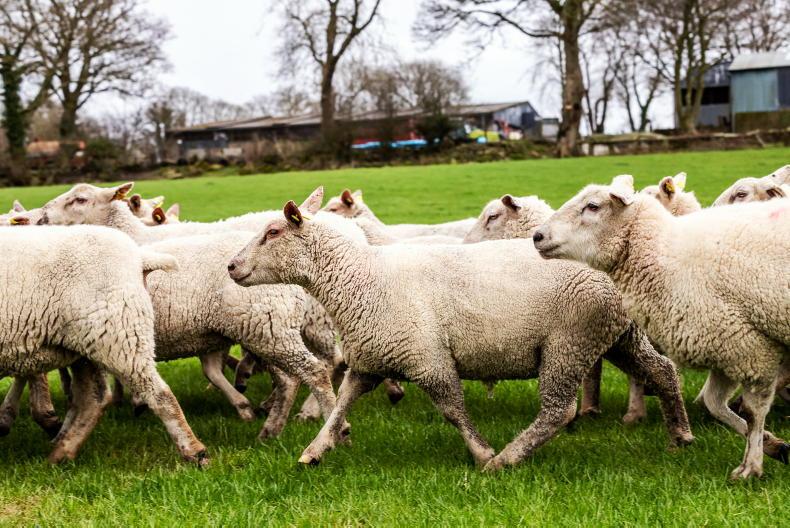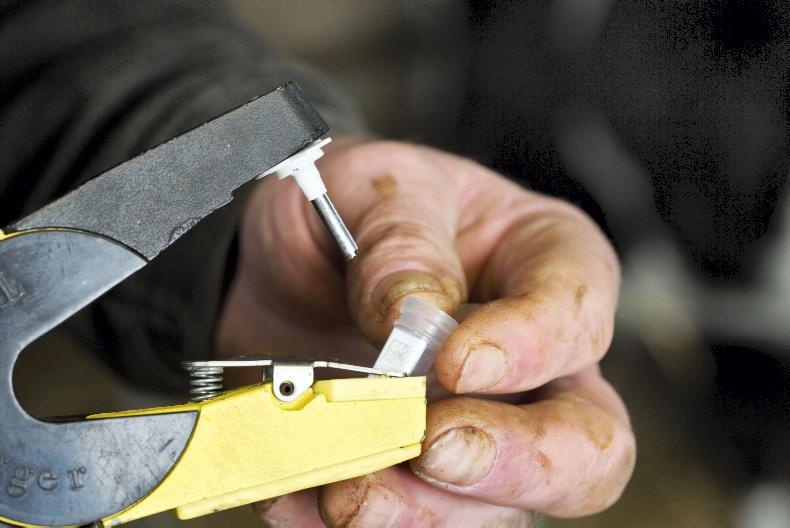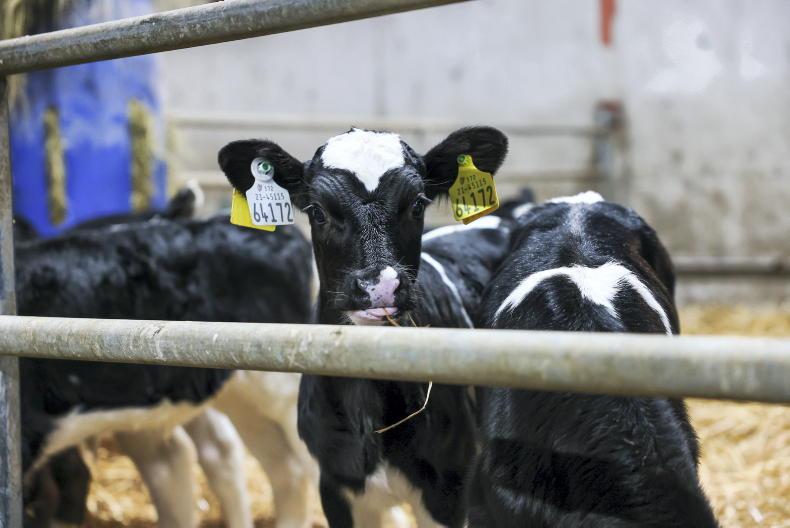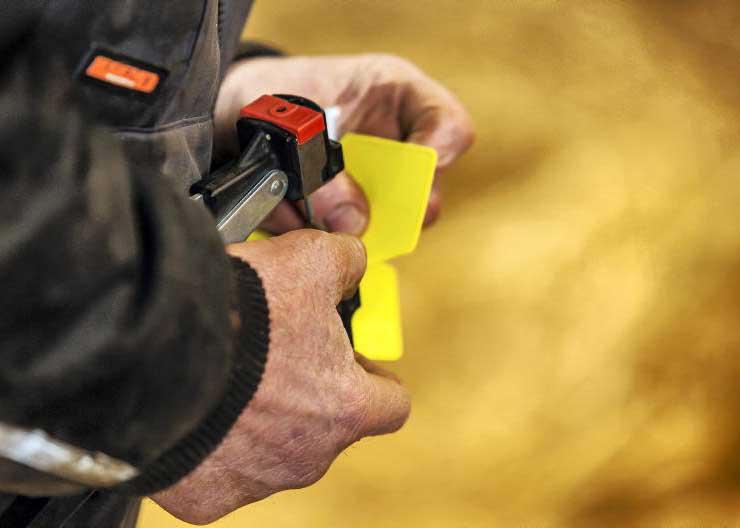As the number of tests for Bovine Viral Diarrhoea (BVD) goes over the 4m mark, it means NI farmers are now likely to have spent over £15m on tissue tags used to identify the disease.
A voluntary phase of the BVD programme, administered locally by not-for-profit body, Animal Health and Welfare NI (AHWNI), was initially set up in 2013, and it became compulsory to BVD test all calves born since 1 March 2016.
With over 4m calves now tested, it has turned into a significant expense for cattle herds, and still with no specific end in sight. In 2012, a flag set of ear tags typically cost £1.55. The following year the same set of tags to incorporate a BVD sample cost £5.35, a difference of £3.80. Across 4m tags, it is a total cost of £15.2m.
The latest analysis does show that the number of new-born calves persistently infected (PI) with BVD has been driven down to low levels. But there remains a small group of farmers who retain PI calves. At present, 43 BVD positive animals over five weeks of age are alive in 34 NI cattle herds. A total of 193 BVD positives were alive on 27 June 2022.
The figures also show that disease incidence increased for nine consecutive months in 2021, and with BVD vaccine purchases down 15% in the first four months of 2022, there is concern that many cattle herds have now little natural immunity to the disease.
Controls
The chief executive of AHWNI, Dr Sam Strain, has again called on DAERA to put in place additional regulation and enforcement to achieve the end goal of BVD eradication in NI.
“The department has indicated that it may implement herd restrictions from April 2023, but we have requested additional specific measures to restrict the movements of pregnant stock and potential ‘Trojan’ animals from restricted herds. We need a full suite of measures put in place as a package,” said Strain.
He pointed out that evidence from other countries shows that eradication can only be achieved when adequate regulatory support is in place. An example is the Republic of Ireland, which is now close to achieving BVD-free status. Once approved, compulsory tissue tagging will be removed as a requirement for most Irish cattle herds.
That will also affect NI farmers moving cattle south for breeding and production (not direct slaughter).
BVD vaccinated animals cannot move to a country that has BVD-free status. For other cattle, additional requirements “may include additional testing beyond the statutory tissue tag test, and, in some cases, a period of at least 21 days in official quarantine”, DAERA advice states.
Responding to that, Strain confirmed that AHWNI has requested the introduction of herd level BVD statuses in NI to potentially reduce the obstacles and costs associated with selling stock to ROI.
Read more
ROI moves towards BVD-free status
Tissue tagging will stay in NI
As the number of tests for Bovine Viral Diarrhoea (BVD) goes over the 4m mark, it means NI farmers are now likely to have spent over £15m on tissue tags used to identify the disease.
A voluntary phase of the BVD programme, administered locally by not-for-profit body, Animal Health and Welfare NI (AHWNI), was initially set up in 2013, and it became compulsory to BVD test all calves born since 1 March 2016.
With over 4m calves now tested, it has turned into a significant expense for cattle herds, and still with no specific end in sight. In 2012, a flag set of ear tags typically cost £1.55. The following year the same set of tags to incorporate a BVD sample cost £5.35, a difference of £3.80. Across 4m tags, it is a total cost of £15.2m.
The latest analysis does show that the number of new-born calves persistently infected (PI) with BVD has been driven down to low levels. But there remains a small group of farmers who retain PI calves. At present, 43 BVD positive animals over five weeks of age are alive in 34 NI cattle herds. A total of 193 BVD positives were alive on 27 June 2022.
The figures also show that disease incidence increased for nine consecutive months in 2021, and with BVD vaccine purchases down 15% in the first four months of 2022, there is concern that many cattle herds have now little natural immunity to the disease.
Controls
The chief executive of AHWNI, Dr Sam Strain, has again called on DAERA to put in place additional regulation and enforcement to achieve the end goal of BVD eradication in NI.
“The department has indicated that it may implement herd restrictions from April 2023, but we have requested additional specific measures to restrict the movements of pregnant stock and potential ‘Trojan’ animals from restricted herds. We need a full suite of measures put in place as a package,” said Strain.
He pointed out that evidence from other countries shows that eradication can only be achieved when adequate regulatory support is in place. An example is the Republic of Ireland, which is now close to achieving BVD-free status. Once approved, compulsory tissue tagging will be removed as a requirement for most Irish cattle herds.
That will also affect NI farmers moving cattle south for breeding and production (not direct slaughter).
BVD vaccinated animals cannot move to a country that has BVD-free status. For other cattle, additional requirements “may include additional testing beyond the statutory tissue tag test, and, in some cases, a period of at least 21 days in official quarantine”, DAERA advice states.
Responding to that, Strain confirmed that AHWNI has requested the introduction of herd level BVD statuses in NI to potentially reduce the obstacles and costs associated with selling stock to ROI.
Read more
ROI moves towards BVD-free status
Tissue tagging will stay in NI









SHARING OPTIONS